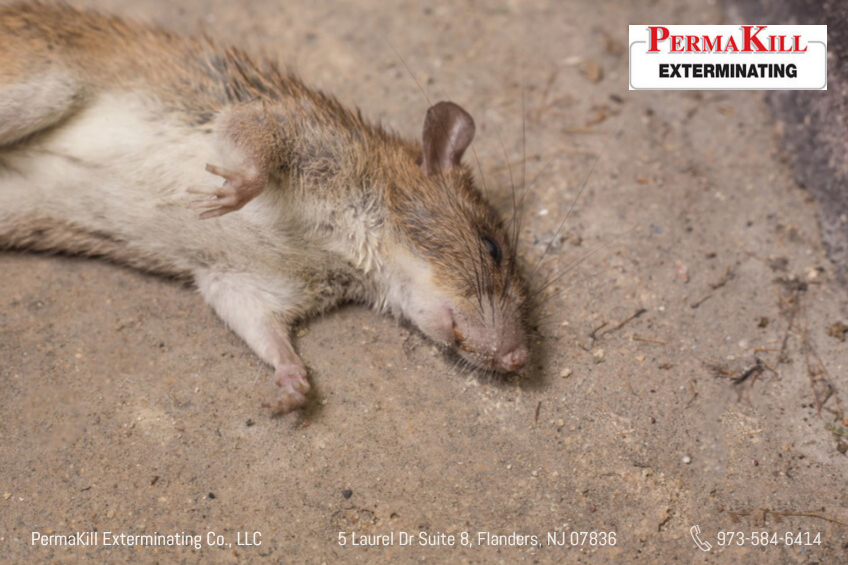


Rodent poison or rodenticides are a popular choice when dealing with pests such as rats and mice. Rodenticides are often mixed with flavorings such as molasses, peanut butter, and fish oil that lure rodents to ingest the poison. While most manufactured rodenticides are highly effective, they fail to resolve rodent infestations due to common human mistakes.
So what are the common mistakes you might be making with rodent poison? Here are six rodenticide slip-ups you could be doing:
Homeowners and DIY pest control experimenters have a difficult time getting rid of rodent infestations. Without proper training or sufficient knowledge of how rodents behave, it’s easy to commit mistakes as you set traps and dole out rodent poison. Some common mistakes you could be making are:
There are many rodent traps available but not all of them are effective. Glue traps, for example, are inhumane and notoriously ineffective because rats and mice can drag them around before breaking free. If you’re placing your bait on an ineffective or inhumane trap, it defeats the purpose.
Consider bait stations instead. A bait station is a box or container with the bait or rodenticide placed inside it. Multiple rats can enter and feed at once. Depending on your poison, they may only need one dose or they have to feed multiple times before it takes effect. Either way, a bait station can keep the poison bait fresh and in the same place for a longer time.
Not all rodenticides work effectively when dealing with certain species so it’s important to identify the rodent you are targeting first. It’s possible that you aren’t successful in your efforts because you’re using the wrong kind of poison on the rats or mice living in the building.
Single-feed baits work well on persistent rodent infestations involving Norway rats or roof rats. Expensive, fast-acting poisons are generally reliable to use on various rat species compared to cheaper over-the-counter poisons so you can consider those as well.
There is no one, universal location to place rat poison that guarantees success but a good setup definitely helps. Placing the rodenticide in the wrong place is like missing the chance to kill the pests. By properly understanding your situation, you would have better results in dealing with the infestation.
One way you can remedy this is by setting up cameras to monitor rodent activity around your property. You would then find out if the rodents are suspicious of your trap or they simply don’t pass by it because it’s outside their normal route.
You should also understand how rats and mice prefer to move. They don’t feel safe in open spaces so they would stick close to the walls. Figuring out where they leave droppings or prefer to feed will also alert you to spots they are comfortable with: cluttered spaces, garages, secluded corners, between furniture, on top of ceilings, and other shady, unexposed areas are ideal.
Your rodenticides will go to waste if you don’t check them regularly. A lot of people tend to forget the poison after they leave it in one area. Doing so means you are unaware if rodents come to feed at all. You have to check your traps to see how much bait is left.
Checking on the bait also ensures its quality. Rats and mice will not approach the rodenticide if it’s stale or spoiled. They have a very sensitive sense of smell and taste so musty, old rat poison will not tempt them to take a bite.
One false assumption many people have is that rodents can be baited with cheese. Unfortunately, this is a misconception that may be failing your pest control efforts. Some rat species, such as roof rats, won’t eat cheese. It’s better to use their diet against them when you try to attract them to the poison you planted.
Rodents love seeds, nuts, and grains. They would be attracted to the smell of peanut butter, hazelnut spread, or even chocolate. You would also have better luck with dried fruits or meats. When the weather starts to get cold, rats and mice begin to build their nests. You can also use materials like cotton balls, yarn, twine, and unflavored dental floss to lure them to your bait station.
Rats and mice reproduce at an incredibly fast rate which makes it difficult to remove all of them from your property. In these situations, you have to put a lot of traps and bait stations in all areas that see a lot of rodent activity. It’s important to note that rodents, especially rats, are wary of these traps and might not enter them immediately.
This is where large quantities of good bait will help you. By introducing an abundance of bait, rodents are more likely to trust the food source. They tend to smell each other’s breath to check which foods are safe. Mix in a large amount of poison into this food pile to disguise the smell and help get rid of the infestation quickly.
Rodent poison is thought to be an easy solution to a rat or mice infestation. However, it poses a lot of dangers as well. Aside from potential mistakes you make that waste the effort, the effects of rat poison may endanger your health as well.
One of the most important things to consider with rodent poison is the possibility that young children, pets, and non-target animals may ingest them. In the US, over 10,000 children accidentally consume rodenticides yearly. And if the rat or mouse successfully gets poisoned, domestic dogs and cats may sample the dead body, placing themselves and you at risk.
There are also two problems that come after you’ve managed to poison these rodents. When rats fall ill, they become too weak and die in places that are hard to reach like behind walls and under floorboards. The smell will linger throughout the building until you pull the dead rodent carcass out.
Should the poisoned, dehydrated rats manage to leave their hideouts to find water, they could experience internal bleeding and die right in the open. You would need to wear protective gear and use tools to clean up after the rat. Aside from the health risks in disposing of a contaminated animal, you may also attract unwanted pests to your dumpster.
Pest control can be a tricky situation where good outcomes are not always guaranteed. You can look for alternatives to rodent poison or figure out a different solution altogether -- but it’s best to consult with someone who has the expertise first.
Pest control is hard to get right, especially if you’re going DIY. Hiring a professional pest control expert will save you a lot of money and trouble in the long run.
PermaKill Exterminating is a family owned and operated business serving the New Jersey area. We have been helping families, businesses, and communities resolve their pest and rodent problems since 1984. When you’re in doubt about how to best eliminate a rat infestation, call PermaKill Exterminating for an inspection today.
Learn more: How Does Rodent Bait Station Work